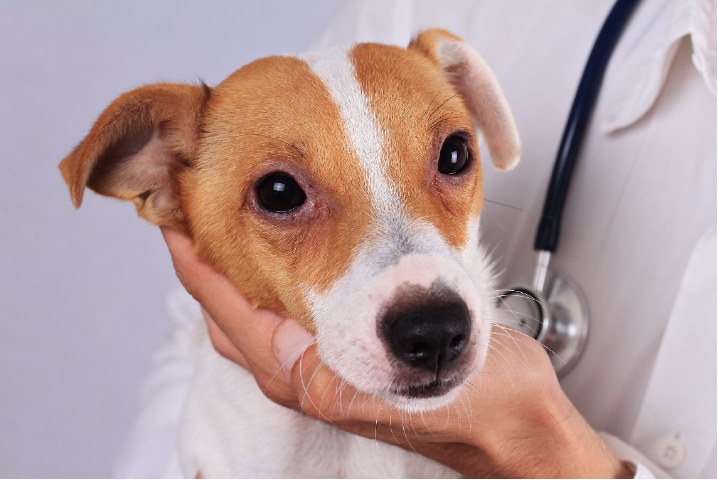
Even though food allergies are not common in dogs overall, the most common ingredients that can cause allergies in dogs are beef, dairy, chicken, wheat, soy, corn and egg.
Q: Is there a test for dogs to show what food allergies they have?
The gold standard for diagnosing food allergies in dogs is by doing an elimination diet. This is done by first eliminating other causes of allergies in dogs such as fleas, primary bacterial/fungal infections and environmental allergens such as dust mites, molds and pollens.
Once those causes are eliminated and the dog still exhibits signs of food allergies then an elimination diet may be performed. This is done by taking a good diet history to know what kinds of proteins the dog has been eating. Then the dog is put on a diet made up of only ingredients (proteins) that he/she has not eaten. This should last for a period of about 8 weeks. If the dogs shows signs that the allergic symptoms are improving during this period then proteins are introduced back into the dog’s diet individually and the dog is monitored for symptoms of food allergies as each protein is reintroduced.
There are some blood tests on the market that are advertised as being appropriate to diagnose food allergies. Most Veterinary experts rely on eliminations diets however to accurately diagnose food allergies.
Q: What are some signs of a dog with food allergies?

Q: What is the best thing to do once you find out what your dog is allergic to?
The best treatment for any type of allergy including food allergies is to try to avoid what is causing your dog to have the problems they are exhibiting. In the case of food allergies this would be working with your Veterinarian to identify what exactly your dog may be allergic to and to adjust your dog’s diet accordingly so as to avoid ingredients or diets that may cause a problem with your pet.
Share this Post:





